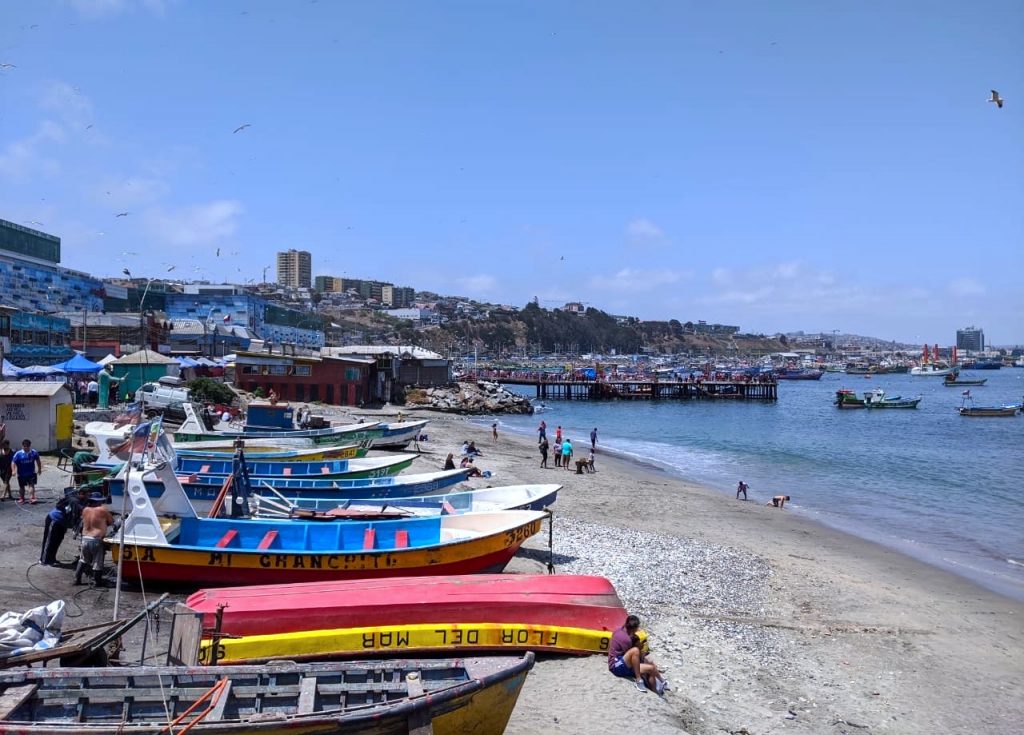By Kelly Pendergrast, Communications Consultant at Future of Fish
Billions of people depend on fish as a critical source of protein. From lobster divers in Belize to handline mahi-mahi fishers in Peru, communities around the world feed themselves and make a living from the fish they pull from the ocean every day. But these livelihoods are under threat. Climate change is already wrecking havoc for coastal communities in developing countries, with rising seas damaging dockside infrastructure and warming waters driving away traditional fish stocks. The result is loss of income, food, and in many cases, cultural heritage.
Climate justice is only possible when front-line communities—like those that depend on the sea for food and livelihoods—have the resources they need for a resilient future. At Future of Fish, we center our work on collaborations with small-scale fishers. Together we design better systems, practices, and technologies that help fishers continue supporting their communities in this time of unstable climate impacts. By working closely with fishers, seafood supply chains, and the local community and governments, we co-design interventions that build environmentally sustainable, climate resilient, and economically viable fisheries for today, and the future.
Our current work with mahi-mahi fishers in Peru is one example of our work to address climate justice within sustainable fisheries. Peru provides 50% of the world’s mahi-mahi and all of it is caught by small-scale fishers using non-mechanized gear. The lifeblood of Peru’s mahi-mahi fishery, these fishers target fish that previously lived off Peru’s coast. But today, the mahi-mahi are moving further out to sea. Fisheries scientists are working to understand what’s causing the shift, but climate change is presumed to be a leading culprit. What were once week-long or ten-day trips now stretch to three weeks because fishers have to travel farther to make their catch. The traditional boats aren’t designed to stay out for such long trips. This means fishers—and the fish they catch—both suffer.
Future of Fish and our partners at WWF are collaborating with Peru’s mahi-mahi fishers to design solutions that will benefit the fish and the fishers. With input from innovators in cold chain technology, naval engineering, and other fisheries around the world, we are working together to build out the technology and regulatory solutions to ensure small-scale Peruvian fishers can fish safely and sustainably in a changing climate. The journey to a climate-resilient mahi-mahi fishery is just beginning, but we’re dedicated to staying in it for the long haul.
While our team has always been concerned about climate, and passionate about creating positive environmental impacts, we now prioritize climate change mitigation as a key design principle in our work. We were galvanized by 2019’s IPCC reports, and the global youth movement dedicated to ensuring our planet and every species on it—including us—have a healthy future to look forward to. We know it’s not going to be easy, but we were never about “easy” at Future of Fish. As a systems-change organization, we dive head-first into the wicked problems facing our oceans and coastal communities, and there is no greater system-challenge than addressing climate change. Climate justice is interwoven with everything we do to protect the future of fish, the communities that rely on them, and the oceans that support us all.
Future of Fish thrives on collaboration. If you have expertise in climate justice, fisheries, systems change, and/or innovation, give us a shout. For more about our projects or to see how you can support our work, visit our website. Either way, we’d love to hear from you, learn from you, and combine forces to scale solutions.
